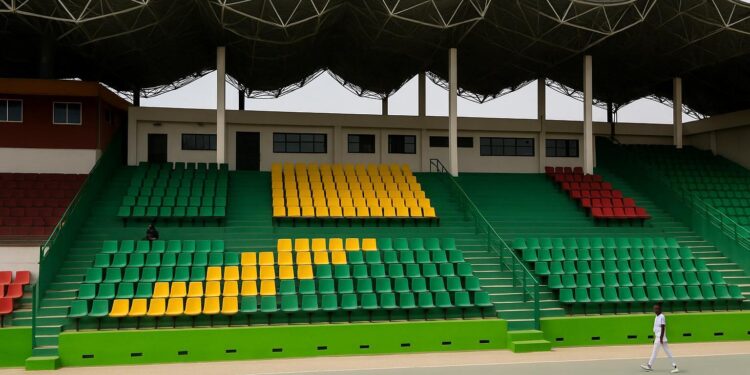Legal Reset After FIFA Arbitration
In May the Court of Arbitration for Sport endorsed FIFA’s decision reinstating the Congolese Football Federation, FECOFOOT, after months of procedural review (CAS bulletin). The ruling appeared to settle a protracted governance quarrel between the federation and the Ministry of Sports.
Yet the legal victory only resolved jurisdiction, not logistics. Stadium management, still held by the ministry under national law, was never transferred to FECOFOOT. That dual control structure has become the new fault line, even as both sides publicly affirm commitment to the sport.
Observers recall similar situations in Cameroon, Egypt and Ghana, where temporary closures followed institutional reshuffles. In each case, reopening required detailed safety audits and joint operating protocols, suggesting Congo’s case could follow a comparable trajectory (FIFA compliance reports).
Ministry’s Safety Rationale Explained
Officials argue that recent crowd disturbances and aging infrastructure justify a gradual, supervised reopening. Spokesperson Gervais Bilomba cited “structural fatigue in bleachers and electrical circuits that demand urgent remediation before mass gatherings resume”, adding that concerts attract smaller, more controllable flows.
The ministry points to the 2022 stampede in Olembe, Cameroon, as a cautionary tale. “We refuse to gamble with lives,” Bilomba told Radio Congo, stressing that football fixtures generally mobilise larger, more volatile groups than cultural events.
Engineers from the national public-works agency confirmed visible cracks at the north stand of Alphonse-Massamba-Débat stadium. They recommend phased reinforcement, a plan that requires tender processes and budget approvals currently before the treasury.
Impact on Domestic Competitions
The closures have already forced two cancellations of the prestigious Coupe du Congo final, while playoff ties between Racing Club de Brazzaville and Association Sportive Ponténégrine were relocated twice before being postponed altogether.
Club presidents lament significant revenue losses from gate receipts and sponsorship activation. “Broadcast deals are honoured, yet fans are locked out, hurting club sustainability,” explained Racing chairman Arsène Mouanda in a telephone interview.
Players feel the pinch as well. National striker Junior Makouta noted that limited match practice affected the Diables Rouges A’ during the latest African Nations Championship, where Congo exited in the group phase.
Sports economists warn that prolonged interruptions could erode talent pipelines, pushing young prospects toward neighbouring leagues in Gabon or the Democratic Republic of Congo, diluting domestic brand value built since the 1974 African Cup triumph.
Government’s Wider Sports Agenda
Beyond football, Brazzaville is preparing for the 2027 Francophonie Games bid. The Prime Minister’s office wants renovated multisport venues to showcase the capital’s readiness for international gatherings, aligning infrastructure upgrades with broader tourism promotion.
Officials insist that temporary hardship for clubs will yield modern facilities compliant with CAF and FIFA standards. A confidential project note seen by The Continent estimates a budget of 28 billion CFA francs, partly financed through a Chinese concessional loan and a contribution from the Central African States Development Bank.
The presidency has instructed the ministry to deliver a detailed progress report by December, balancing fiscal prudence with geopolitical partnerships that have underpinned past projects such as the Kintélé Olympic Complex opened in 2015 (Xinhua).
Diplomatic Stakes Ahead
Regional sports diplomacy remains a subtle instrument of soft power for Congo-Brazzaville. Hosting qualifiers or youth tournaments enables informal dialogue with neighbours on security and trade, analysts at the Institute for Security Studies argue.
In this context, an extended stadium blackout risks diminishing Brazzaville’s convening authority just as it seeks to mediate Chad-Sudan border tensions. Reopening, therefore, carries implications that stretch well beyond the touchline.
International bodies have offered technical help. A joint CAF–FIFA mission is expected in October to review safety protocols and support the drafting of a memorandum of understanding between the ministry and FECOFOOT, according to documents shared with member associations last week.
Paths Toward a Pragmatic Settlement
Privately, both camps acknowledge a shared interest in returning crowds to the stands. Negotiators are exploring a transitional committee that would include federation officials, ministry engineers and police commanders to oversee matchday operations.
Senate sources say a bipartisan sports bill will propose clearer delineation of responsibilities, codifying the federation’s autonomy over scheduling while affirming state ownership of venues, echoing models used in Morocco and Senegal.
If enacted before year-end, the legislation could pave the way for the Coupe du Congo final to grace a refurbished Massamba-Débat by August 2026. Such an outcome would signal policy coherence, reassure sponsors and, crucially, rekindle the roar that still defines Congolese weekends.












































